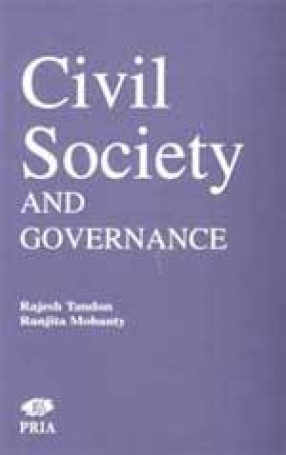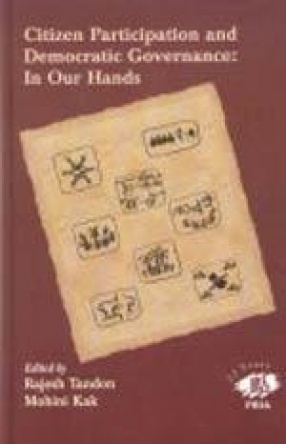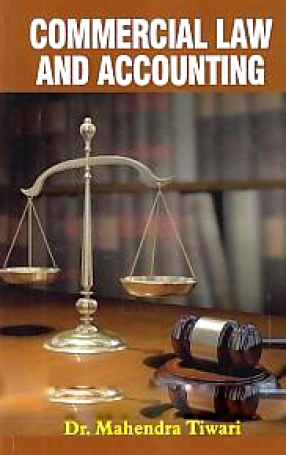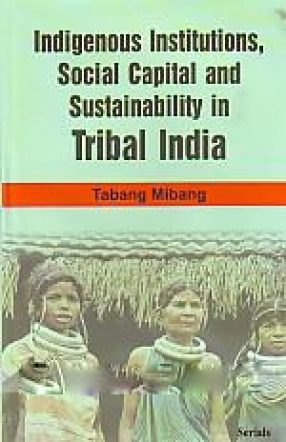The modern state is increasingly capable of dominating the social, political and economic spheres of an individual’s and a community’s life. This intrusion and the consequent infringement on freedom and autonomy have raised questions about the legitimate boundaries of state power., It has also given rise to debates on how civil society can demand and ensure good governance. In this framework, this volume explores and analyses civil society initiatives which address and impact on issues of good governance. It makes a cogent case for broadening the conceptualisation of governance so as to rescue it from the widely prevalent view that governance is the sole responsibility of the state. The contributors argue that the people must be given the space to decide what is good for them and for defining their version of governance. The volume is divided in two sections. The first part deals with conceptual and theoretical issues concerning the interface between civil society and governance. Among the important aspects discussed are: The concept of civil society as a third sphere, Establishing a balance between the state, the market and civil society, The ways in which ordinary citizens can make the state accountable The second part presents five case studies of assertions in the sphere of civil society which substantiate the theoretical insights presented in the first section. This empirical evidence relates to: The Chilika Bachao Andolan in Orissa, The Chhattisgarh Mukti Morcha, Dalit assertions in the Meerut region of Uttar Pradesh, The struggle of the pavement dwellers in Mumbai to be accorded a place in civil society, The fight of Kol tribals in Uttar Pradesh to secure the rights provided to them by the state. Broadening our understanding of the nature of civil society and good governance while providing insights into the efficacy of collective action by marginalised groups, this volume will be of interest to students and scholars of political science, public and development administration, governance, democracy and sociology while also being of use to social and political activists.

Does Civil Society Matter? Governance in Contemporary India
$29.45
$31.00
In stock
Free & Quick Delivery Worldwide
All orders amounting to US$ 50 or more qualify for Free Delivery Worldwide. For orders less than US$ 50, we offer Standard Delivery at $14 per book.
ABOUT THE AUTHOR Rajesh Tandon
Rajesh Tandon has a doctorate in organizational behaviour from the Case Western Reserve University. Cleveland, in 1978. He founded the Society for Participatory Research in Asia in 1982 to provide support to the grass root initiatives in India and since then has advanced the cause of building organizations and capacities of the marginalised through their knowledge, learning and empowerment. He has advocated for a self reliant, autonomous and competent voluntary sector both in India and at the global level. A renowned authority on participatory research, through his research and practice, Dr. Tandon has contributed to the evolution of new thinking and methodologies in people centered development. He has written extensively on various aspects of development, voluntary sector, the relationship between the state and voluntary sector and in recent times has helped advance the concept of civil society and citizen participation world wide.
ABOUT THE AUTHOR Ranjita Mohanty
Ranjita Mohanty has a doctorate in Sociology from Jawaharlal Nehru University, New Delhi in 1996. Beginning with her doctorate research which Beginning with her doctorate research which looked at the local struggle against development such a big dams, she has been exploring various dimensions of collective action relating to natural resource management and issues relating to people's participation in development. This has helped her understand and analyse the issues pertaining to development planning and policy, problems of displacement, loss of survival resources of the poor, issues of ownership and control of poor people over the resources on which they survive, coming together of people for their common interest, and the complex and changing relationship between civil society and the state. In her work she has strived to bring theory and practice closer to each other so that reflection and action can influence social transformation. She is currently working with the Society for Participatory Research in Asia, New Delhi.
reviews
0 in total
Review by Anonymous
Be the first to review “Does Civil Society Matter? Governance in Contemporary India” Cancel reply
You must be logged in to post a review.
Bibliographic information
Title
Does Civil Society Matter? Governance in Contemporary India
Author
Edition
1st ed.
Publisher
ISBN
8178291487
Length
378p.
Subjects
more by Rajesh Tandon see more
Participatory Citizenship: Identity, Exclusion, Inclusion
According to this volume, ...
$25.20
$28.00
Citizen Participation and Democratic Governance: In Our Hands
This collection of eleven ...
$32.40
$36.00
more by Ranjita Mohanty see more
Participatory Citizenship: Identity, Exclusion, Inclusion
According to this volume, ...
$25.20
$28.00
similar bookssee more
Commercial Law and Accounting
$78.30
$87.00






There are no reviews yet.